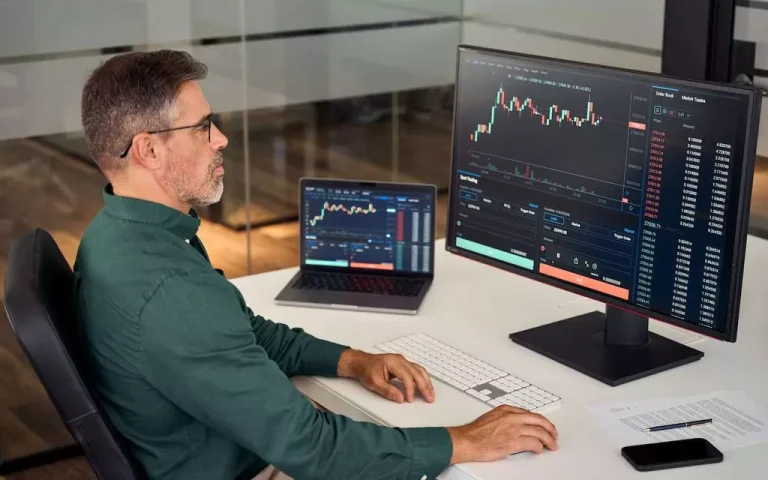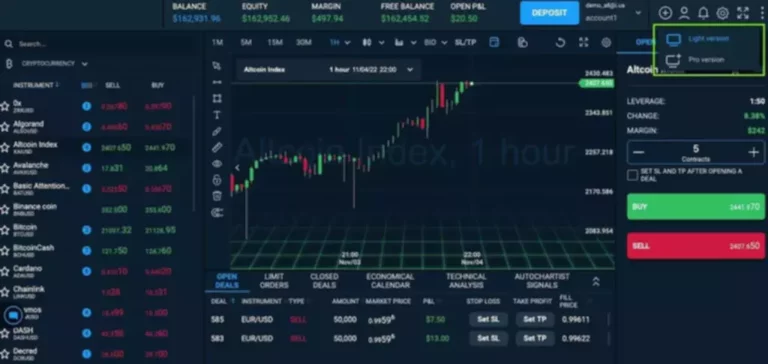Content
For example, if an asset’s price varies between two distinct markets, arbitrage entails purchasing at the lower price and selling at the higher price to secure a profit. Proof of stake To initiate trading with a digital prop trading firm, an audition fee is required. This serves as a qualification process, ensuring that the firm’s capital allocated to you for trading is not at risk. Above all, the landscape of market dynamics is changing rapidly, creating new opportunities and challenges for proprietary traders.
What Is Prop Trading: Pros and Cons
In prop trading, traders typically begin by undergoing an assessment or “Prop Trading challenge” set by the firm to demonstrate their skills. Upon passing the assessment, they are provided with access to a funded trading account. The firm offers ongoing access to this account based on the trader’s performance, and both parties share any profits made, with the firm https://www.xcritical.com/ often taking a small share to cover costs and risks. A prop trader is an individual who trades on behalf of a proprietary trading firm, using the firm’s capital to execute trades. This setup allows traders to work with more capital than they might have personally, benefiting from profit-sharing arrangements rather than managing the complexities of capital funding.

Can Banks Engage in Proprietary Trading?

This flexibility enables them to respond swiftly to market trends and execute high-risk, high-reward trades. Axi Select was created to give talented traders the opportunity to receive funding without paying any subscription or joining fees. Joining a capital allocation program does not always require proprietary trading extensive experience, as each program has its own specific set of requirements.
Why Choose Maven’s 3-Step Challenge?
This involves trading in debt instruments such as government bonds, corporate bonds, and other fixed-income securities. JPMorgan Chase, for example, has a substantial fixed-income trading operation, dealing in bonds and other debt instruments. Now, imagine you have money to invest, but you don’t know much about stocks or trading.
How does Axi Select help traders to grow?
- Proprietary trading involves financial firms trading in the financial markets using their capital instead of acting as an intermediary for clients.
- In this article, we dive into the fundamentals of prop trading, explore the advantages and risks, and outline how traders can get started.
- Tap into 20+ years of industry expertise and showcase your skills with confidence.
- Staying informed about regulatory changes and macroeconomic trends will help you navigate these shifting waters effectively and position yourself for long-term success in prop trading.
- Generally, most prop firms make money from taking pre-agreed percentage from traders’ profits.
- Following the implementation of the Volcker Rule, many U.S. banks spun off their prop trading desks.
- These Prop Trading firms require day traders who can join them and spend a considerable sum for ‘training’ instead of the privilege of trading.
By sharing in profits rather than taking commissions, these firms align their interests with those of the traders, fostering a collaborative and mutually beneficial relationship. Risk management is a vital factor in any form of trading and prop trading is no exception. Because a firm’s own capital may be at risk, there will often be higher levels of scrutiny with regards to the activities of prop traders, and stringent conditions will usually apply.
Traders working within the firm receive payouts based on a predetermined percentage set by the firm. You’ll often encounter the terms ‘proprietary trading’ or ‘prop trading’ in finance.But what exactly do they mean? In this article, we’ll delve deeper into prop trading, explore the benefits, risks, and how it compares to other forms of trading, such as hedge funds. As well as being a trader, Milan writes daily analysis for the Axi community, using his extensive knowledge of financial markets to provide unique insights and commentary. Prop trading firms are made up of traders who trade with the company’s capital.
Additionally, if your strategies and decisions are not sound, they can lead to severe financial setbacks for your firm. It’s necessary to approach proprietary trading with caution and a clear risk management strategy to navigate the inherent challenges. Funded Pro Trader only provides services of simulated trading and educational tools for traders. The information on this site is not directed at residents in any country or jurisdiction where such distribution or use would be contrary to local laws or regulations. Funded Pro Trader companies do not act as a broker and do not accept any deposits. The offered technical solution for the Funded Pro Trader platforms and data feed is powered by liquidity providers.
Consequently, traders should thoughtfully consider their objectives and risk tolerance prior to settling on a strategy. Most prop trading now occurs online, vastly expanding the potential trader pool. Before diving in, it’s essential to understand that while there are considerable advantages, significant risks are also part and parcel of the journey. Being aware of these is crucial prior to embarking on your prop trading journey. After understanding the competitive landscape, you may consider employing arbitrage strategies. These involve identifying and exploiting price differences in various markets to secure profit without risk.
A trader would typically pay a joining or subscription fee before participating in a challenge or assessment period. They would have to demonstrate their trading abilities with a particular amount of capital, with the prop firm imposing a maximum drawdown and profit target. If the trader successfully completes the challenge, they will be entitled to join the program and receive extra financing in the future. If you are a talented trader, you can build a career buying and selling financial instruments. Proprietary trading is the act of a company (prop firm) hiring third parties (prop traders) to trade their (the firm’s) own money. The prop firm allocates risk capital to the prop traders; in return for their services, traders are awarded a profit split.
Unlike traditional brokerage firms, prop firms don’t earn commissions or fees from clients. Instead, their revenue is directly tied to the profits generated by their trades. These firms may specialize in various financial markets, including stocks, forex, and commodities. Proprietary trading, or proprietary trading , refers to the practice where financial institutions use their own capital to trade financial instruments.
Successful traders are then allocated firm capital, and profits are shared between the trader and the firm. Prop firms commonly provide educational resources, mentorship, and risk management systems to help traders succeed. In the world of finance and trading, proprietary (prop) trading has become increasingly popular. This unique approach allows traders to trade with a firm’s capital, opening doors to more extensive financial resources and profit potential. In this article, we dive into the fundamentals of prop trading, explore the advantages and risks, and outline how traders can get started.
Many institutions have had to adjust their trading strategies to comply with these laws, often leading to increased transparency and reduced risk in financial markets. Thus, understanding proprietary trading and its diverse forms is vital for financial institutions, given the significant potential for profit, coupled with the inherent risks. Firms like The Trading Pit exemplify the modern prop trading company, embracing both the opportunities and challenges of the market.
Risk limits and rules are in place to make sure traders who qualify to become signal providers are producing usable, valuable trading information. Prop trading usually gives traders access via a virtual account to a higher level of capital than they would normally have available for trading. A prop firm may not always enforce leverage limits, particularly if you have a history of success. Using that leverage (borrowed money) effectively can dramatically expand your opportunity for profit. A retail trader’s deposit money is insured under the Securities Investor Protection (SIPA) Act by the Securities Investor Protection Corporation (SPIC).
To maintain this swift payout system, Hola Prime uses advanced forecasting to predict daily liabilities. This ensures the firm is always prepared to meet trader obligations, even during high-traffic periods. “Waiting for payouts can be incredibly stressful for traders, especially when they’ve worked hard to meet their profit targets.
